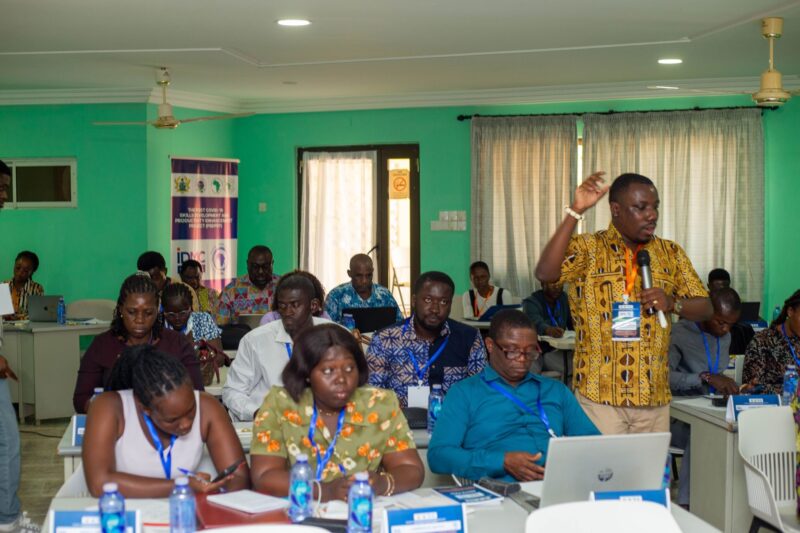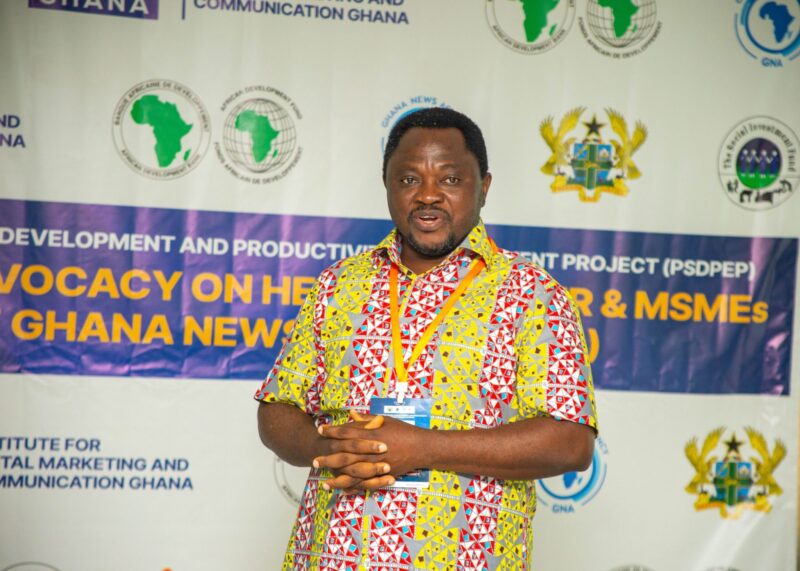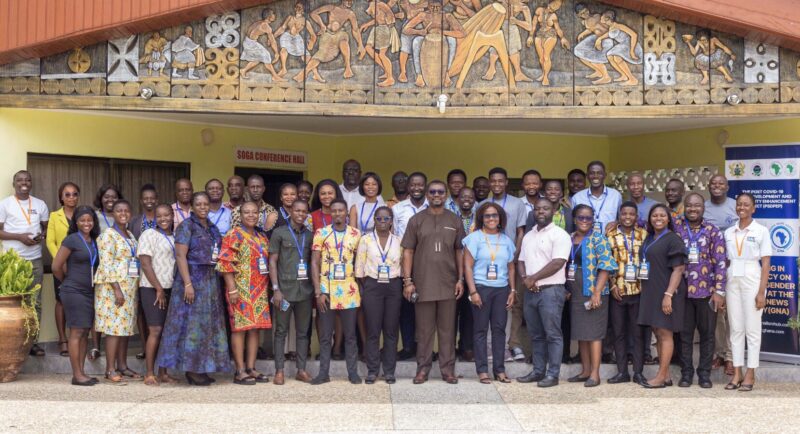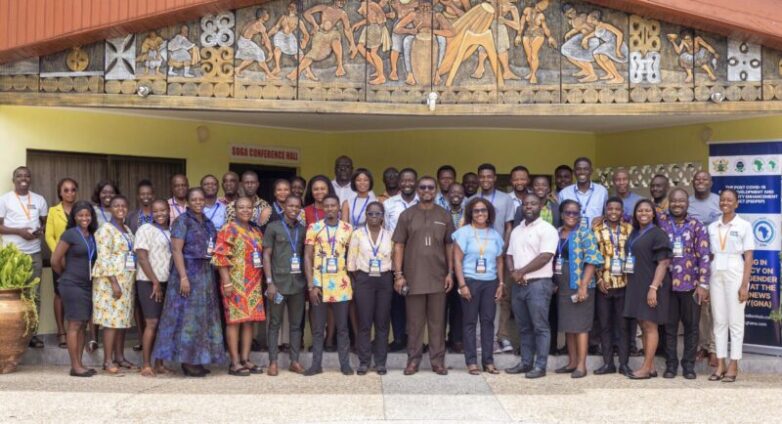A public health epidemiologist, Dr. Nii Hanson-Nortey, has stated the vital role of journalists in tackling misinformation and disinformation during health crises.
In the wake of recurrent global health crises, he said the media had evolved into an effective tool for shaping public perceptions and behaviours, sometimes with life-changing implications.
Dr. Hanson-Nortey was speaking on Health Communication and Infectious Diseases during a virtual presentation, as part of a four-day skills development training for journalists and editors of the Ghana News Agency (GNA) at Sogakope, Volta Region.
The training was facilitated by the Institute for Digital Marketing and Communication Ghana (IDMC-Ghana) and formed part of the Post-COVID-19 Skills Development and Productivity Enhancement Project (PSDPEP), being sponsored by the African Development Bank.

It would promote effective communication on issues of health, infectious disease, Micro, Small and Medium Enterprises, gender, digital storytelling and climate change.
Dr. Hanson-Nortey stated that the propagation of disinformation during infectious disease outbreaks not only aggravated public health issues, but also caused widespread panic.
He contended that, while the media could provide essential information, it could also serve as a conduit for misinformation.
According to Dr. Hanson-Nortey, disease outbreaks are more than just a public health problem; they are also “information crises.”
He said the stakes were now higher since epidemics could spread both physically and digitally, with print, posts, and videos frequently going ‘viral’ faster than the infection itself.

Dr Hanson-Nortey said the media had the onus to disseminate accurate, clear, and responsible information.
“Journalists have at times both built and undermined public trust, serving as both a constructive source of scientific facts and as a destructive source of rumour that tends to amplify panic,” he said.
Dr Hanson-Nortey observed that, given the potentially damaging implications of poor epidemic reporting, “journalism has a responsibility to contribute to enhanced public knowledge during times of pervasive fear.”
He noted that disinformation might have an impact not only on the general public, but also on health professionals, policymakers, and doctors, whose actions were sometimes influenced by the wave of popular opinion generated by media coverage.

He added that clear professional guidelines based on journalistic and healthcare ethics, as well as educational resources for reporters covering epidemics, were needed.
Mr. Charles Yao Mawusi, a consultant, urged journalists to use advocacy strategies to influence public opinion, create policy change, and address issues of inequality.
They must advocate for truth, public well-being, and social justice rather than simply reporting the news.
Latest Stories
-
President Mahama can do it with just 30 ministers – Prof. Avea Nsoh
8 minutes -
Hearts midfielder Saani Mohammed joins Danish side AC Horsens
20 minutes -
West Ham to appoint Potter after sacking Lopetegui
42 minutes -
Ablekuma North: We won’t accept any ‘illegality’ coming from EC – NDC
43 minutes -
I’m done with Ablekuma North, EC should find a new person – Returning officer
46 minutes -
Ghana has the human resources to deal with energy crisis – Mahama
2 hours -
We will miss our former MP Joseph Cudjoe – Effia constituents
2 hours -
Urban Sports Festival: 2025 edition set for January 25 in Accra
3 hours -
Mahama to scrap import duty on vehicles in first 100 days – NDC 2024 manifesto
3 hours -
Appoint the right people to creative arts institutions – Akofa Edjeani to Mahama
3 hours -
Speaker refers to NPP MPs as ‘Micro-Minority,’ sparks outrage
4 hours -
NJOA: An ode to Professor Naana Jane Opoku-Agyemang
4 hours -
Scuffle breaks out during recollation of Ablekuma North parliamentary results
4 hours -
CLOGSAG condemns forceful ejection of civil servants from official residences
4 hours -
Europe will not allow attacks, says France, after Trump Greenland threat
5 hours

